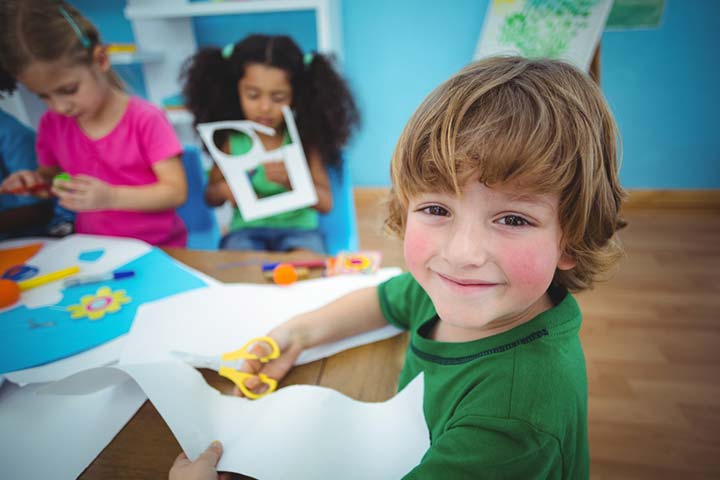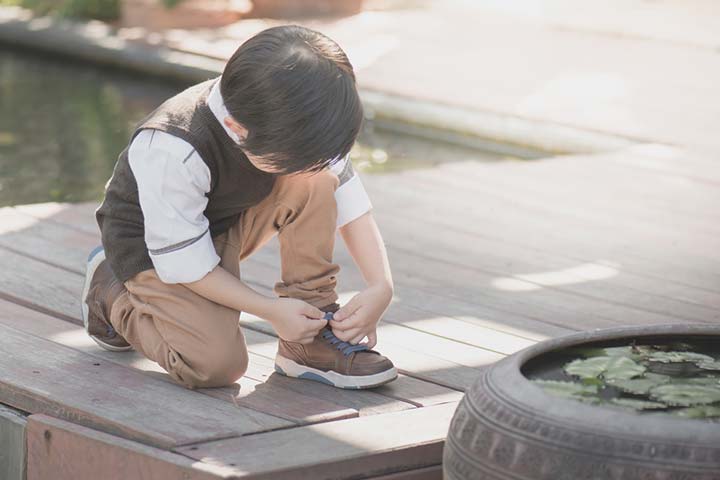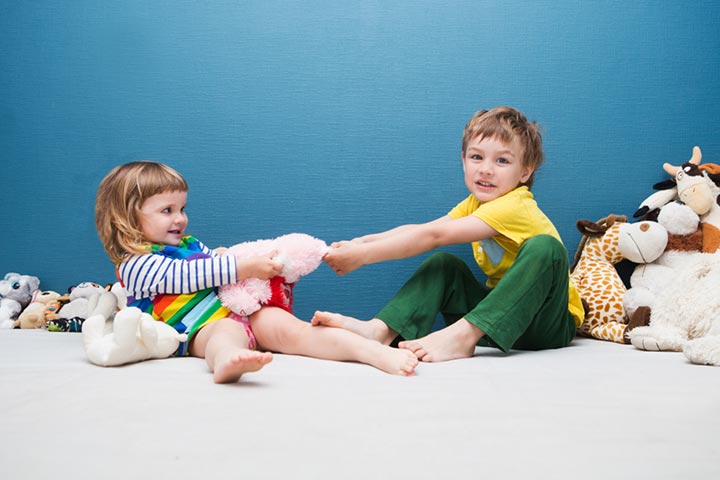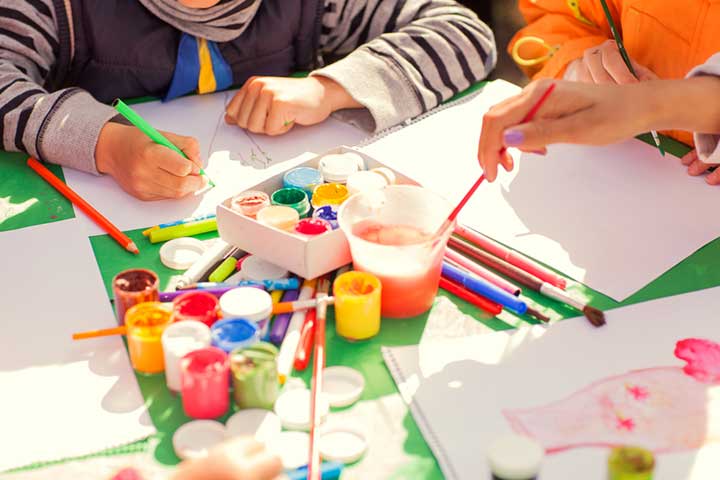
Image: Shutterstock
Children are inquisitive by nature, and they are always grasping the things going on around them. This helps them learn skills from elders, which in turn prepares them for life. Parents are the first teachers to their kids, and teaching them specific skills will make sure they perform better in life. Here is a complete list of the skills that should be taught to your toddler by the time they reach school:
1. Using Scissors Appropriately
Image: Shutterstock
It is common for children to forget how to handle scissors properly. Draw a smiling face on the finger and explain to a child that it must always grin back at them to help them remember how to place their hand and avoid an injury.
2. Learning The Art Of Tying A Shoelace
Image: Shutterstock
When it comes to teaching a kid how to knot their shoelaces, it’s not always an easy task. Alternatively, how about drawing boots on cardboard, making small holes, and inserting shoelaces? Thanks to this, there will be no more strewn shoes about the house, and you won’t have to check to see if your baby is playing in clean boots. You’ll also discover new techniques to tie your shoes as an added bonus!
3. Learning How To Behave Properly At The Dining Table
Image: Shutterstock
While children learn how to eat and behave at a table, there might be accidents like overturning bowls, throwing spoons, etc. It is essential to remain calm as they are not doing it on purpose most of the time and their motor skills are still developing. The trick is to remain calm and teach them to follow table manners from the very beginning.
4. Learning To Count
Image: Shutterstock
Lego bricks may be used to teach your kid fundamental math concepts. Make cards out of paper and write the numbers on each one. Next, make a colorful tower out of the number of blocks shown on the card and place it on the board. The more they build it, teach them how they increase the blocks through the numbers. Once they are thorough with the concept of adding, you can slowly introduce subtracting the blocks.
5. Understanding The Concept Of Fairness
Image: Shutterstock
You could find it tough to explain to your children what justice is, especially when it comes to sharing. You can make this easier by arranging two boxes where you divide the sweets equally and keep them for the kids. This way, they will know it’s only fair to themselves and others when they eat their own share.
6. Regularly Brushing One’s Teeth
Image: Shutterstock
Put up a fun brushing chart on the bathroom wall and decorate it with bright markers. Ask your kids to color the sun and the moon on this chart when brushing their teeth. You may even reward them with a unique incentive at the end of the month to motivate them to maintain proper oral hygiene.
7. Cleaning The House Regularly
Image: Shutterstock
Toys are a favorite pastime of children everywhere, but they also spill everywhere. To make sure the toys are not thrown around, assign a particular place in their room where they can keep the toys after they are done playing with them.
8. Being Cautious When Applying Adhesive
Image: Shutterstock
When a kid is working on an art project, it is not uncommon to use up all of the glue on their hands and desk. To make sure they use it responsibly, ask them to take a container, place a moist sponge inside, and add some adhesive to it to avoid sticky accidents. To apply glue, just press the paper against the sponge and apply the glue.
9. Picking Their Toys
Image: Shutterstock
Many parents continuously step on Lego pieces and other little toys, and it takes a lot of time and effort to clean them up. To swiftly clean up the mess, all you need is a dustpan. (Why did we not think of this sooner?!) Ask your kids to try and clean them by picking them up on their own after playing with them.
10. Making A Plan And Sticking To It
Image: Shutterstock
Teach your children how to manage their time by following the clock. If they can’t read time yet, you can do this with the help of some colored markers. To distinguish between different activities, just color-code the clock’s various components. 5-6 p.m. for homework; 6-7 p.m. for dinner, etc. Teach a kid how to do this. They’ll keep to a routine a lot easier this way.
Teaching your kids things at a tender age isn’t easy, so you have to simplify the task as much as possible so they understand better. You can also make it more fun by rewarding them once they complete the job. So, which of these points could you connect to the most? Let us know in the comments section!






















